Liberals of all countries, unite! Just as anti-liberal powers outside the west are becoming stronger than ever, the assault on everything we stand for has been joined by the United States. Against this massed onslaught of anti-liberal nationalists we need a determined fightback of liberal internationalists. Canada’s election this week can contribute a strong mounted brigade.
A core insight of liberalism is that, if people are to live together well in conditions of freedom, power always needs to be dispersed, cross-examined and controlled. Faced with the raw, bullying assertion of might, whether from Washington, Moscow or Beijing, we now have to create countervailing concentrations of power. In the long history of liberalism, a free press, the law, labour unions, a business community kept separate from political power, NGOs, truth-seeking institutions such as universities, civil resistance, multilateral organisations and international alliances have all served – alongside multiparty politics and regular free and fair elections – to constrain the men who would be kings.
In rallying everyone who believes in equal individual liberty to this fight, we liberals have a problem of our own making. Policies associated in many people’s minds with liberalism over the last 40 years have themselves fed the reservoirs of popular discontent from which nationalist populists continue to draw support. Neoliberalism, hypercharged through a globalised financialised capitalism, has led to levels of inequality not seen for a hundred years. An identity politics intended to remedy the historic disadvantages of selected minorities has left many other members of our societies – especially white, male, working and middle class – feeling themselves culturally as well as economically neglected. Both these approaches reneged on liberalism’s central promise, lucidly summarised by the philosopher Ronald Dworkin as “equal respect and concern” for all.
Neoliberalism has also turned the world’s most powerful democracy into something very close to oligarchy. The separation of private wealth and public power – a precious and fragile innovation of modern liberal democracy – has been reversed. Insatiable plutocrats such as Elon Musk, Jeff Bezos and Mark Zuckerberg are now supporters of Donald Trump’s political power, while he promotes his own and his rich pals’ economic interests. With the help of the media and platforms the plutocrats control, Trump persuades many ordinary Americans that their suffering is entirely due to foreigners (immigrants, China), while in reality it is more likely to be the fault of people such as Musk, Bezos and Zuckerberg.
So we have to fight simultaneously on two fronts: with the enemies of liberalism and the problems created by liberalism itself. Unity will be strength. If we each try to negotiate separately with the bullies, be they in Washington, Moscow or Beijing, they will pick us off one by one.
These coalitions of counter-power will be composed of states, but also of civil society actors and active citizens. At least half the population of the United States is with us. Electoral authoritarian states such as Turkey and Hungary also have lots of would-be-free citizens. The world’s largest example of applied liberal internationalism, the 27-country European Union, will be crucial to the fightback. So will major individual democracies including Britain, Canada, Japan and Australia.
We need to do many things at once. Promoting free trade against Trumpian beggar-thy-neighbour protectionism is an obvious starting point. It’s also easier said than done, since mutually beneficial trading arrangements take time to craft. Yet there are some accessible immediate wins. A trade agreement between the EU and the Mercosur group of Latin American states only awaits ratification by all relevant parties. Britain and the EU should be more ambitious at their upcoming summit on 19 May. The EU doesn’t need anyone else’s involvement for it to create a single digital space and unified capital markets, nor to build up European defence industries, which would also be a neo-Keynesian economic stimulus.
The monopolistic platforms and mega-wealth of the American oligarchs are a danger to all other countries. If the EU were prepared to use its regulatory superpower, coordinated with the efforts of other liberal democracies, we could do more to curb them. But regulation and taxation alone are not enough.
Whether in Europe, Canada, Australia or Japan, our entire digital infrastructure is effectively American. Imagine one day your iPhone and iPad stopped working, along with your cloud provider, Google, Amazon, Facebook, Instagram, WhatsApp and Twitter (AKA X-itter). What would be left? TikTok! “And Bluesky”, you may add, referencing the liberal social platform of choice. But that too is American. This is not only about infrastructure. It’s about how we create the digital public sphere essential for the future of liberal democracy.
Civil society initiatives can also help. Why, for example, haven’t we already seen a major statement of solidarity with embattled US universities from universities across the liberal world?
So can consumer protests. The impact of a largely spontaneous boycott of Tesla cars is pushing Musk to return to his business activity, cutting the leisure time he can spend on vandalising his country’s administrative state. Canadians now have the BuyBeaver app on their phones, so they can avoid US-made goods. (I hope they boycott Russian ones too.)
It’s also a matter of fighting style. Anti-liberal nationalists use the bludgeon, we the rapier. When they go low, we go high. When they go ape, we stay cool. When they lie through their teeth, we stand by the facts.
In foreign policy, the most urgent challenge is to save Ukraine, which Trump is throwing under the bus. The fact that he is pressing the Ukrainians to abandon even their legal claim to Crimea being part of Ukrainian sovereign territory shows how supporting Ukraine is now essential to defending fundamental principles of liberal international order.
What emerges after this hurricane will not be the same as before. It will be transformed both by us learning from our own mistakes, so as to build back better, and by the revolutionary impact of Trump. A liberal democratic constellation that is not fundamentally secured by the US “liberal leviathan”, in the Princeton scholar John Ikenberry’s striking phrase, will be something very different from what we knew between 1945 and 2025.
Even the geography will change. Canada, for example, which once seemed – in the nicest possible way – somewhat peripheral to world affairs, comfortably tucked up there between a friendly America and a frozen Arctic, now suddenly looks like a frontline state. One of the world’s most liberal countries is, beside Ukraine, one of the most directly threatened by Trump’s anti-liberal assault. And the thawing Arctic is a major new theatre of international competition. Fortunately, it looks as if Canada is going to have a government that is not just Liberal in name but also combatively liberal in nature.
A quarter-century ago, when the United States was attacked by Islamist terrorists on 11 September 2001, the editor of Le Monde wrote a famous banner headline: “We are all Americans!” Today, friends of liberty the world over should say: “We are all Canadians!”
-
Timothy Garton Ash is a historian, political writer and Guardian columnist

 German (DE)
German (DE)  English (US)
English (US)  Spanish (ES)
Spanish (ES)  French (FR)
French (FR)  Hindi (IN)
Hindi (IN)  Italian (IT)
Italian (IT)  Russian (RU)
Russian (RU)  4 hours ago
4 hours ago




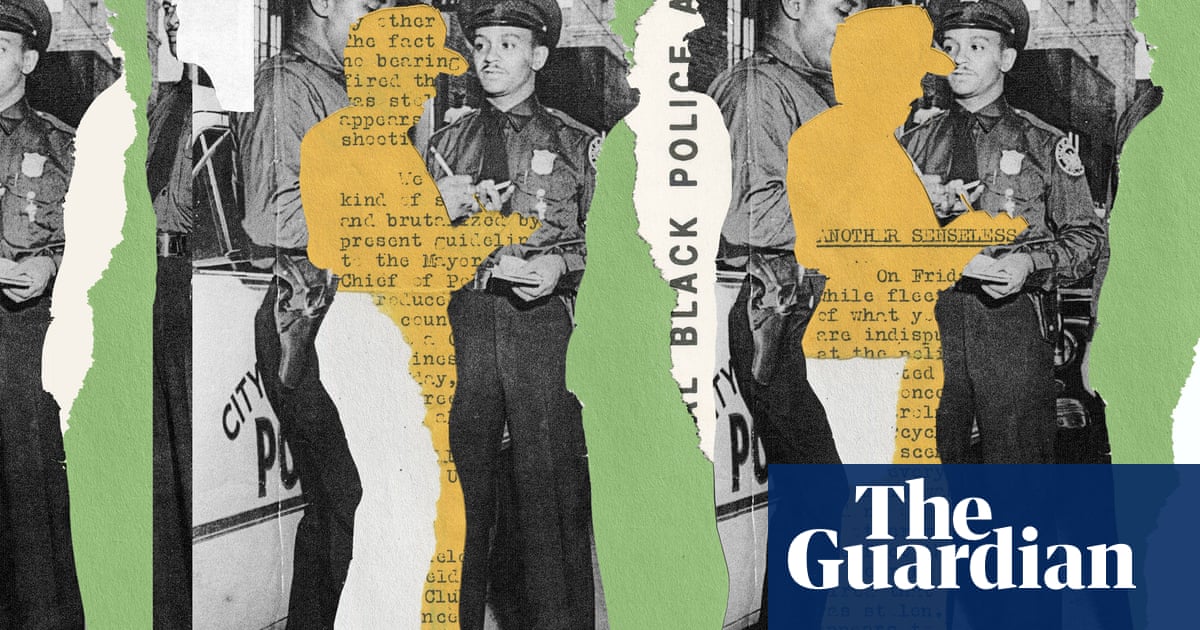
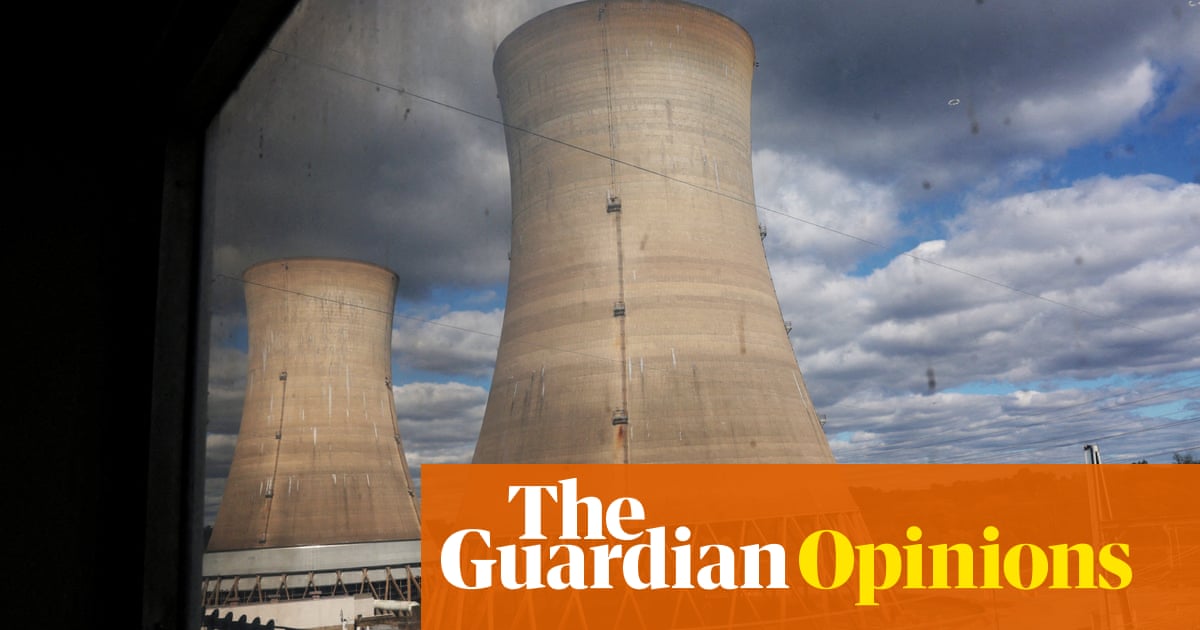
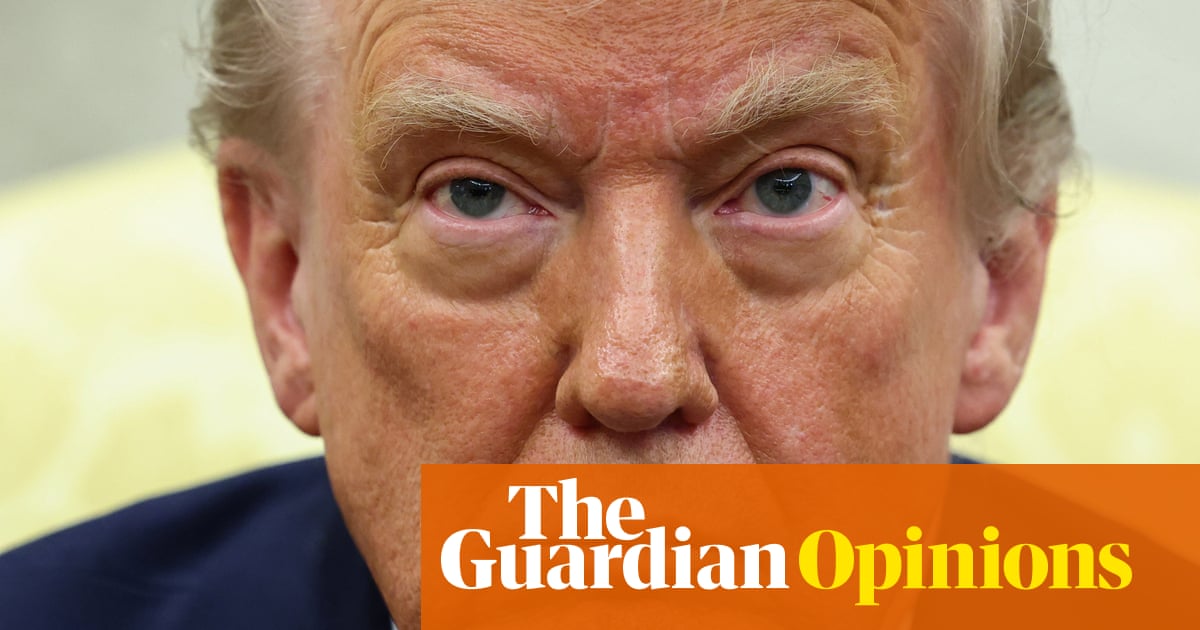
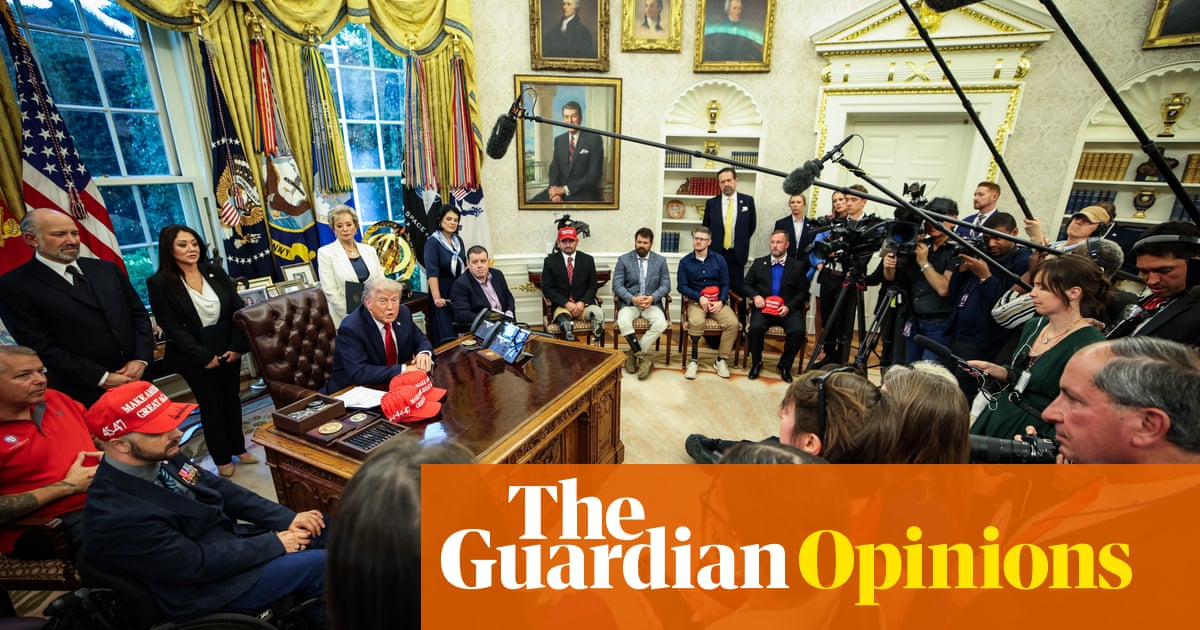









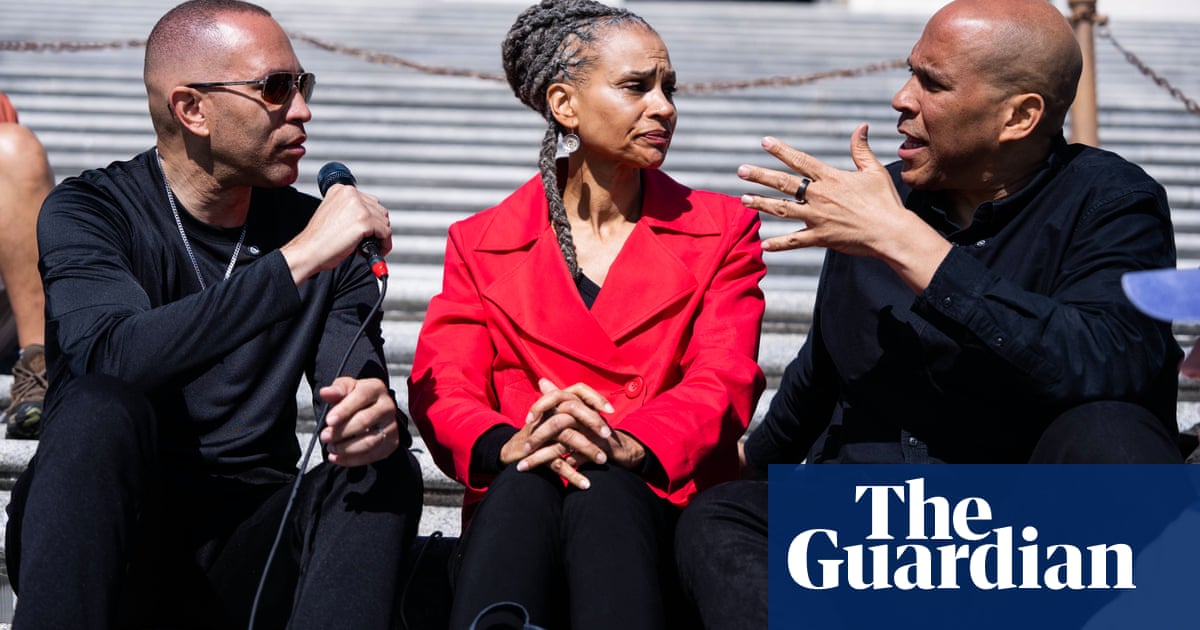
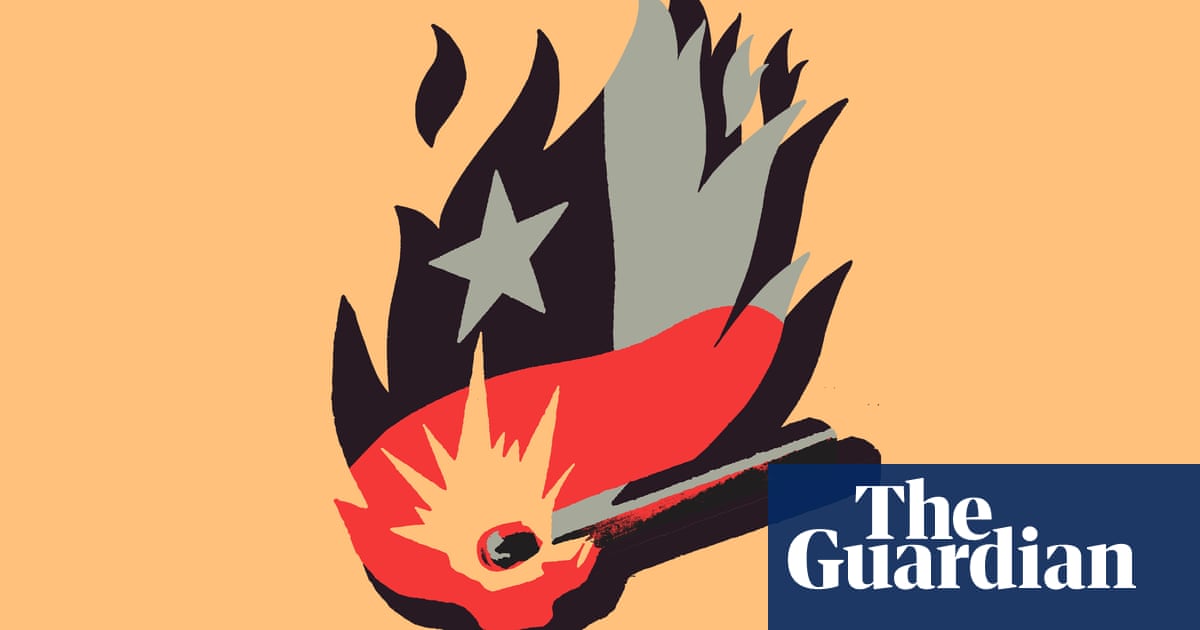





Comments